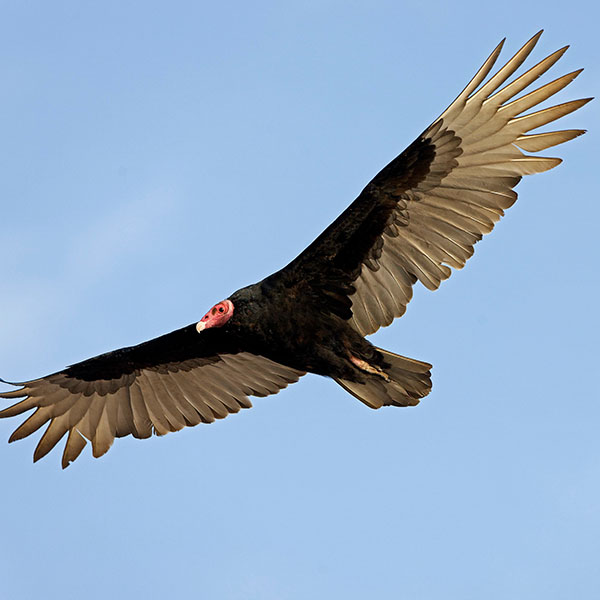Turkey Vulture
Cathartes aura

Animal Ambassadors
Although vultures often have a bad reputation, they are a vital part of a healthy ecosystem. Vultures are obligate scavengers, meaning that their diet is almost entirely composed of dead animals. This requires special adaptations; for example, vultures have bald or sparsely-feathered heads so that bits of meat don’t cling to their faces after feeding. Additionally, turkey vultures can often be seen sunning themselves with their wings spread wide; this allows the sun’s UV rays to kill bacteria on their feathers and aids in thermoregulation. Even more impressive, vultures have an extremely acidic stomach pH between 0 and 1; this is the most corrosive stomach acid of any vertebrate, even capable of dissolving some metals! This allows vultures to safely consume carcasses carrying diseases such as botulism, anthrax, cholera, salmonella, rabies, bubonic plague, etc. This ability helps to reduce the presence of disease in the environment.
Luckily for us, turkey vulture populations have remained stable. Unlike most other birds, turkey vultures possess a highly developed sense of smell, allowing them to locate rotting carcasses. They’re also among the most talented soarers in the animal kingdom, able to stay aloft for hours without a single wingbeat. This is only possible in the presence of warm thermal updrafts, so northerly populations will usually migrate south during winter.
Small rodents, amphibians, insects
Continental U.S., Central & South America
10 years / 20-30 years
: Open and semi-open farmland, forests, scrublands
5.5-6.5 ft
2-4.5 lbs
